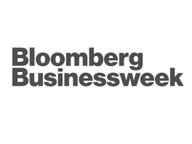Faculty News
—
Prof. Roy Smith reacts to Credit Suisse's guilty plea for tax evasion
—

Excerpt from Bloomberg -- "'The value of a criminal admission only has symbolic value to let the public know the Justice Department is out there doing its job.' said Roy Smith, a finance professor at New York University’s Stern School of Business and a former Goldman Sachs Group Inc. partner. 'I don’t think it extracts anything other than an opportunity to register a symbolic victory.'"
Faculty News
—

Excerpt from Bloomberg -- "'The value of a criminal admission only has symbolic value to let the public know the Justice Department is out there doing its job.' said Roy Smith, a finance professor at New York University’s Stern School of Business and a former Goldman Sachs Group Inc. partner. 'I don’t think it extracts anything other than an opportunity to register a symbolic victory.'"






















